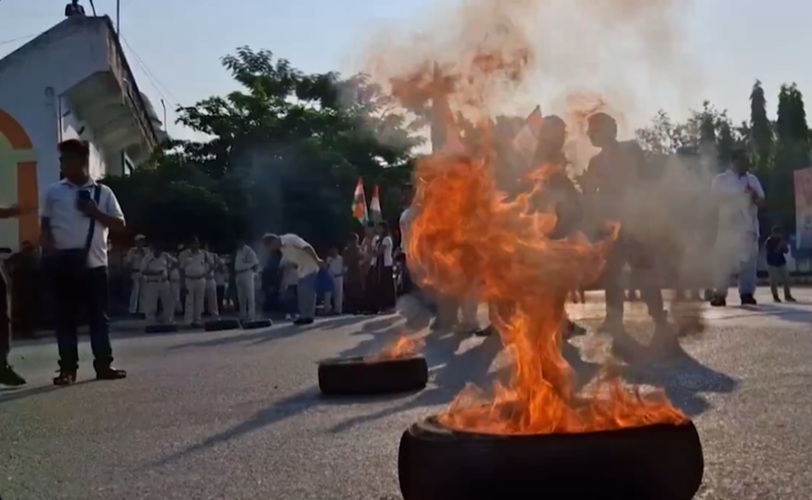Agartala: A 24-hour bandh called by the newly formed Tripura Civil Society on Thursday drew a mixed response across the state, with the hills witnessing widespread shutdowns while the plains remained largely unaffected, officials said.
The organisation had called the strike to press for an eight-point charter of demands, including the implementation of the Tiprasa Accord, identification of illegal immigrants in accordance with Ministry of Home Affairs directives, and establishment of detention camps in each district.
The bandh, which began at 6 a.m., brought life to a standstill in several areas under the Tripura Tribal Areas Autonomous District Council (TTAADC), where the Tipra Motha Party holds influence.
Shops and markets remained shut and vehicles stayed off the roads. However, in the plains, normal activities continued with minimal disruption.
State police spokesperson Rajdeep Deb said the strike remained peaceful, with no reports of violence as of 10 am.
“Supporters blocked roads at 36 locations, affecting vehicular movement. Train services between Agartala and Dharmanagar were briefly disrupted, though operations from Agartala to Sabroom continued as usual,” he said.
Additional security forces were deployed in sensitive areas, and riot control teams were kept on standby.
Chief Minister Manik Saha criticised the bandh, saying such actions hinder development.
ALSO READ: IED blast on railway track halts train services in Assam
Without directly naming any group, he remarked that the strike was politically motivated.
“People know who is behind this. Many NGOs themselves have opposed the bandh. It seems intended only to attract media attention rather than serve public interest,” Saha told reporters at Takarjala in Sepahijala district.
CPI state secretary Jitendra Chaudhury also denounced the call for the bandh, terming its demands “unrelated to the people’s immediate concerns.”
The Tiprasa Accord, signed in March last year between the Tipra Motha Party, the Centre, and the Tripura government, aims to ensure the socio-economic development of the tribal communities in the state.















